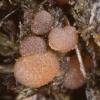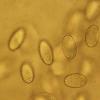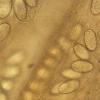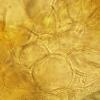
24-02-2026 11:01
Gernot FriebesHi,found on a branch of Tilia, with conidia measur

23-02-2026 11:22
Thomas Læssøehttps://svampe.databasen.org/observations/10584971

29-11-2024 21:47
Yanick BOULANGERBonjourJ'avais un deuxième échantillon moins mat

07-02-2023 22:28
Ethan CrensonHello friends, On Sunday, in the southern part of

19-02-2026 17:49
Salvador Emilio JoseHola buenas tardes!! Necesito ayuda para la ident

19-02-2026 13:50
Margot en Geert VullingsWe found this collection on deciduous wood on 7-2-
Iodophanus
Zuzana Sochorová (Egertová),
20-10-2015 18:17
 Hello,
Hello,this Iodophanus grew on a dung of herbivore - I think everything fits well to I. carneus, except the size of spores.
Apothecia in groups, 0.5-1.5 mm broad, pinkish, pulvinate.
Ascospores 19-24,5 x 12-14 micrometers, ellipsoid, with visible nucleus (?) in the middle, distinctly warted (the warts measure about 0.5 micrometer), hyaline.
Asci 235-265 x 26-35 micrometers, amyloid in the whole lenght, octosporic, biseriate.
Paraphyses 4.5-5.5 micrometers broad, 6-11 micrometers at the apex, septate, containing little guttules.
Excipulum consisting of globose cells.
With the key by Prokhorov I came to Iodophanus testaceus, but it should be a non-coprofilous species... moreover, the colour is different in the photos I found.
So - I guess my fungus is simply Iodophanus carneus with larger spores... what do you think? (Dennis gives quite a broad span of spore size: 18-22(-30) x 10-12(-18) micrometers, Fungi fimicoli italici give 15-20 x 7.5-10.5 micrometers in the key, but 17-26.2 x 10-14.7 micrometers in the description).
Thanks, Zuzana
Michel Delpont,
20-10-2015 18:53

Re : Iodophanus
Zuzana Good evening.
Indeed spore size sometimes can be quite variable; I think it is good to I.carneus. I enclose you the following article on the difficulties of separating I.carneus I.testaceus.
Michel.
Zuzana Sochorová (Egertová),
20-10-2015 22:05

Re : Iodophanus
Thank you very much, Michel!
Peter Püwert,
21-10-2015 00:19
Re : Iodophanus
Hi,
there I am to the same opinion like Michel.
The differences with spores sizes in the FUNGI FIMICOLI... between some keys and the descriptions are often still more seriously and very much misleadingly.
Regards Peter.
there I am to the same opinion like Michel.
The differences with spores sizes in the FUNGI FIMICOLI... between some keys and the descriptions are often still more seriously and very much misleadingly.
Regards Peter.





 Iodophanus-carneus-and-I-testaceus-independent-taxonomic-identity-or-synonymy-Cinto-2007-0001.pdf
Iodophanus-carneus-and-I-testaceus-independent-taxonomic-identity-or-synonymy-Cinto-2007-0001.pdf